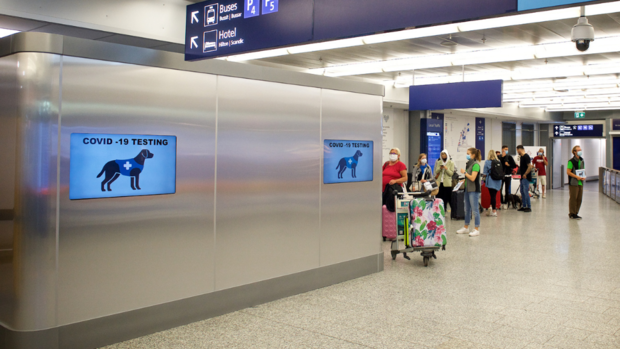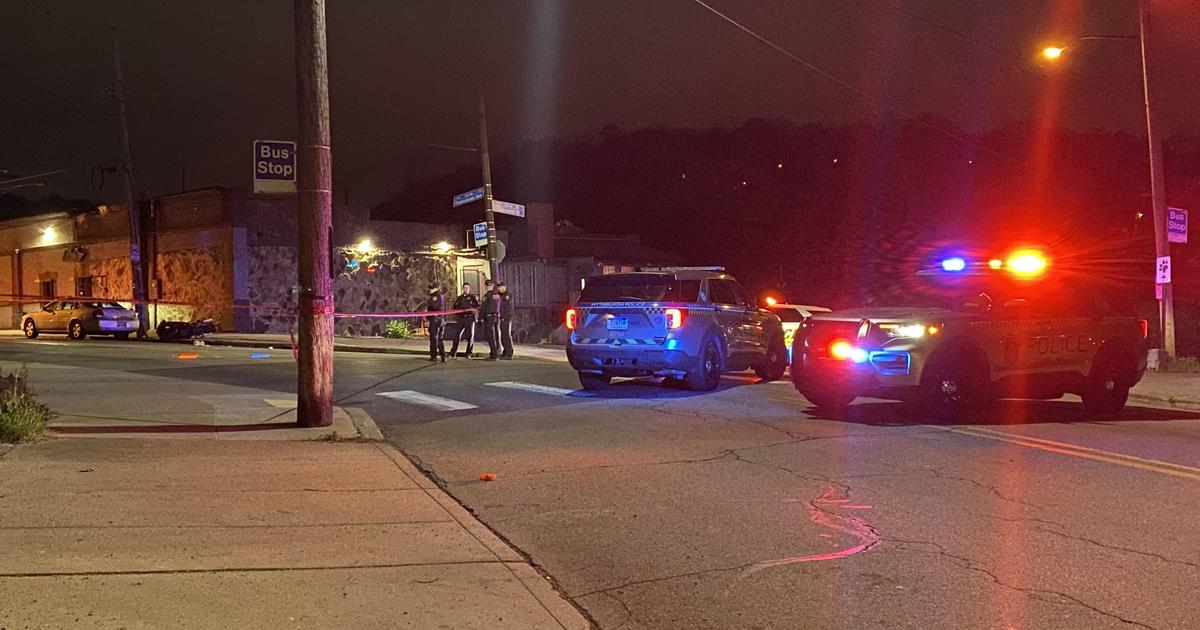Furry Tails: Working Dogs Sniffing Out COVID-19 In New 'Pilot' Programs
By: Digital Content Producer Heather Lang
PITTSBURGH (KDKA) -- Three hundred million to 6 million. That's how many more smell receptors dogs have compared to humans.
That's why we humans often turn to our most loyal friends and their incredible noses to detect nefarious scents like drugs, bombs, accelerants, insects, diseases and more.
Nothing has been more nefarious lately than the worldwide spread of the coronavirus known as COVID-19. More than 200,000 dead here just in the United States alone and that's doesn't even account for the rest of the globe.
The spread of this virus has made many things in our world unsafe. That includes travel. But dogs might be able to take just a little bit of the worry out of it.
Last week, The Washington Post reported on a brand new pilot program in Finland. The country's main airport in Helsinki has brought in sniffer dogs specifically trained to detect COVID-19 in travelers.
Think we should do this in Pittsburgh? @KDKA https://t.co/INLOvt2tLC
— MEGHAN SCHILLER (@MeghanKDKA) September 23, 2020
According to Reuters, the team is made up of 15 dogs and 10 handlers/trainers.
"They are very good [at it]. We come close to 100% sensitivity," Anna Hielm-Bjorkman, adjunct professor at the University of Helsinki, told Reuters.
The test is a simple one, reports Reuters. The traveler being tested is given gauze to wipe on their neck. That gauze is then put in a container and given to one of the dogs in a separate room for a sniff test. Passengers who are suspected of carrying the virus by the dogs then must undergo a swab test to confirm the results.
Reuters also reports that the airport hopes to someday have the dogs work among passengers, much like working dogs with Customs do.
The United Arab Emirates has a similar program at Dubai International Airport. There, they swab the traveler's underarm, put the swab in a container and let the dogs sniff it in a separate area.
The dogs in UAE are trained police canines.
The Emirates News Agency reports the dogs have a "coronavirus detection accuracy rate of 92%."
When dogs will be used to detect coronavirus in American airports remains unknown, but the University of Pennsylvania's School of Veterinary Medicine is working to make it happen.
Their pilot program involves "using scent detection dogs to discriminate between samples from COVID-positive and COVID-negative patients," according to Blue Sky News, Pittsburgh International Airport's news publication.
"The potential impact of these dogs and their capacity to detect COVID-19 could be substantial. This study will harness the dog's extraordinary ability to support the nation's COVID-19 surveillance systems, with the goal of reducing community spread," Cynthia Otto, the director of Penn Vet's Working Dog Center, told Blue Sky News.
The University of Pennsylvania trials have so far "trained nine dogs to detect a scent present in patients diagnosed with COVID-19."
The trial shows the dogs having a 95% accuracy rate. However, there is still more work to be done.
Blue Sky News says the university is now recruiting 400 people for a trial to test whether dogs "can differentiate between those who test positive for the virus and those who test negative simply by sniffing clothing."
The trial will use 200 people who have tested positive for the virus and 200 people who have tested negative.
With success so far in these three pilot programs, as well as other trials in Germany and France, it might not be long before dogs and their 300 million smell receptors are sniffing out COVID-19 in airports here in Pennsylvania and around the world.
Providing a sense of security not only on the homefront, but also as we get back to traveling, whether it be for work, leisure, adventure or any other reason.
_____________________________________________________________________________________
Stay tuned animal lovers for more Furry Tails! You can follow me on Twitter at @HeatherLang24




